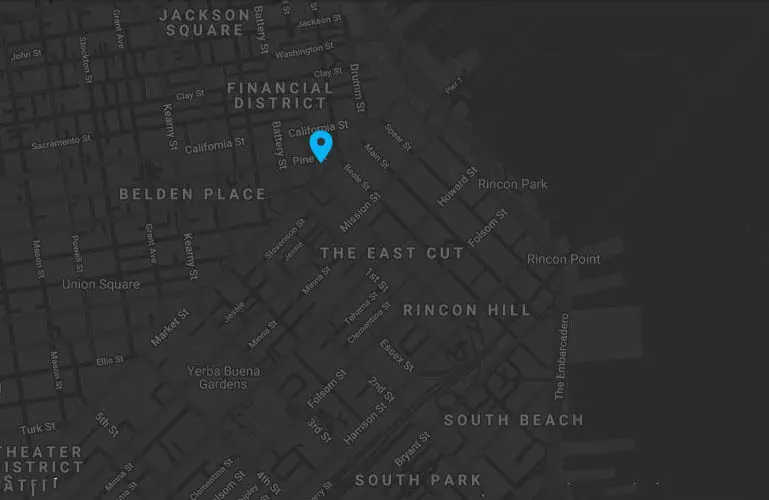Search Engine Optimization. 7 Questions To Ask
Have you ever fantasized about having a friend at Google that at the click of a button could move your website to the top search ranking for all your critical keywords? I know I have. Our position on search engine results can be make-or-break for small businesses and non-profit organizations as we depend on organic traffic to connect with our target audiences. High ranking equates to lots of traffic and opportunity. Low ranking leads to irrelevance and Chapter 7. So, how do you know if your website is performing well on your behalf? It all depends on search engine optimization.
Here are 7 questions to ask:
Search Engine Optimization #1. Is your website getting penalized?
Google’s search engine operates on two major algorithms, Panda and Penguin, that get updated 500-600 times each year. The stated purpose for these algorithms is to “to reward high-quality websites and diminish the presence of low-quality websites in Google’s organic search engine results.” For each update, websites become exposed to penalties based on changes to the algorithms. Historically, this has been a result of the cat-and-mouse game between search engines and SEO specialists that employ what is referred to as “black hat” SEO tactics. These tactics can include duplicating content, keyword stuffing and link schemes, all of which are designed to artificially increase your ranking. If your website has been flagged by Google, then you are being penalized and will experience a significant drop in search traffic if not shut out completely. In order to remove your website from the Google blacklist, you must remove all of the offending tactics that got you flagged. To find out if your website is blacklisted, go to https://cuteseotools.com/google-penalty-checker.
Search Engine Optimization #2. Is your website guilty of plagiarism?
Plagiarism is alive and well and thriving on the Internet. The very fact that we are given instant access to an infinite amount of content makes it all the more easier to take shortcuts when adding content to our website pages and blog posts. Unfortunately for would-be plagiarists, search engines are aware of this problem as they believe that plagiarized content hurts the quality of their searches and results in higher ranking for low-quality websites. If your website uses plagiarized content you will get penalized. To see if your site contains plagiarized content, click here: https://smallseotools.com/plagiarism-checker/. Search engines want web pages to feature evergreen content, which is fresh, unique content that is relative to the website it resides in.
Search Engine Optimization #3. Is your website responsive?
Although responsive websites are now the industry standard, millions of websites still do not provide a mobile-friendly experience. In addition to the poor showing your website will have for site visitors using mobile devices it will also hurt your organic search rankings. In 2015, Google updated their mobile search algorithms to favor websites that are built on a responsive framework. The company will judge you by how “mobile friendly” your website is as they consider the mobile user experience to be core to their belief that high-quality websites deserve higher ranking than low-quality sites. If your website is not responsive it is time for an upgrade.
Search Engine Optimization #4. Is your website fast?
Another website quality that Google covets is speed. A fast website creates a better user experience and happier customers. To ensure that your website is humming along, make certain that it is coded properly at the structural level. You may need a developer to take a look at your source code to determine this. Code may be optimized that creates a more efficient website, such as reducing the number of CSS files and javaScript files. Test all the images on the website to ensure that they have been optimized for download times. Use different images for mobile view than you do for desktop view. Make certain that you are using a reputable host company that offers tier-one access to the Internet. To test your website performance, go to GT Metrix and run a free optimization report: https://gtmetrix.com/.
Search Engine Optimization #5. Are your pages optimized for SEO?
If your website runs on WordPress you have many advantages for SEO. WordPress has evolved into a SEO-friendly CMS platform, plus there are several plugins you can add that will increase the quality of your SEO on pages. I recommend that you download Yoast SEO as it provides excellent tools for on-page optimization. For each page, Yoast allows you to add focus key phrases, keywords that are the most relevant to the content on that particular page. Using your focus key phrases, you then create your title and meta-description. By using these key phrases at least three times in the content area of your website you will ensure that your page is SEO-friendly.
Search Engine Optimization #6. Is your website optimized by outbound SEO?
Outbound SEO are strategies designed to increase your organic ranking using external pages. One of Google’s top criterion for organic ranking is the number of websites that link to yours. Their reasoning is that websites that have the highest number of links must be very popular, and thus desirable for searchers. Many black hat SEO marketers have resorted to creating artificial or low-quality websites with the sole purpose of tricking Google into thinking a website is more popular than it actually is. These are called link schemes, and don’t fall for it. Google will nail you with penalties. The best way to build a healthy outbound SEO strategy is to share links with other reputable sites and register your site on industry directories.
Search Engine Optimization #7. Does your website use XML sitemaps?
Sitemaps have been used since the creation of the first websites as a tool to help users navigate. As useless as they tended to be it was very common to find a link at the bottom of a web page. Today, site navigation best practices have greatly increased the user experience and negated the need for users to click on a site map in order to access the information they are looking for. Although, XML sitemaps are not designed specifically for human users anymore, they are certainly of great value to search engines. XML sitemaps allow search engines to crawl a website more effectively and index every page, including pages that may otherwise be isolated from the main pages. If your website runs on WordPress and you have the Yoast SEO pugin installed activating your XML sitemaps is very simple. Once you’ve installed your maps, go to Google Webmaster Tools to register your XML sitemaps with Google.
Conclusion
The issues we covered in this article represent just a few critical actions you can take to improve your website ranking on search engines. Although there are technical steps that can improve a website’s performance it is important to note that SEO is not a quick-fix or one-time task. Effective SEO requires ongoing strategies that take time and commitment in order to deliver on desired results. If your business or non-profit organization is interested in professional SEO services please contact us today and request a complimentary SEO assessment.
If you are interested in Search Engine Optimization please contact us today for a complementary assessment.
About D E E P B L U E
D E E P B L U E is a full-service, custom San Francisco web designer that specializes in creating an entirely new user experience through responsive design, placing an equal imperative on both desktop and mobile devices. They create impactful multi-platform solutions for meaningful brands. D E E P B L U E offers a suite of creative services to improve the online visibility and impact of your business. Their capabilities range from custom websites with responsive design and robust CMS solutions to branding and marketing campaigns, all with a deep focus on the user experience. They succeed in providing their customers with a unique and engaging multi-platform experience. D E E P B L U E’s clients range from small business to Fortune 500, from start-ups to 100-year-old stalwarts, from non-profits to government agencies.




